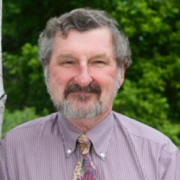The Recovery Model of Mental Healthcare
 The recovery model is a holistic, patient-centered approach to mental healthcare. This model has gained momentum in recent years and is based on the simple premise that it is possible to recover from a mental health condition.
The recovery model is a holistic, patient-centered approach to mental healthcare. This model has gained momentum in recent years and is based on the simple premise that it is possible to recover from a mental health condition.
That may not sound too surprising two decades into the 21st century but not that long ago, schizophrenia, bipolar disorder, and similar severe mental health conditions were considered chronic and beyond the reach of any meaningful recovery.
“As the name of the model implies, its hallmark principle is the belief that people can recover from mental illness to lead full, satisfying lives,” wrote Sarah Lyon in 2020 on Verywellmind.com. “Until the mid-seventies, many practitioners believed that patients with mental health conditions were doomed to live with their illness forever and would not be able to contribute to society.”
In the 1980s, the late Colorado Recovery founder Richard Warner used empirical evidence to strongly challenge the then-prevailing view of schizophrenia, which suggested that psychosis was strongly characterized by poor clinical and social outcomes. Since then, epidemiological, sociological, psychological, and biological research has made many aspects of that outdated model unsustainable.
“A central tenet of the recovery model is that empowerment of the user is important in achieving a good outcome in serious mental illness,” wrote Dr. Warner in 2010. “To understand why this may be so, it is important to appreciate that people with mental illness may feel disempowered, not only as a result of involuntary confinement or paternalistic treatment but also by their own acceptance of the stereotype of a person with mental illness. People who accept that they have mental illness may feel driven to conform to an image of incapacity and worthlessness, becoming more socially withdrawn and adopting a disabled role. As a result, their symptoms may persist and they may become dependent on treatment providers and others.”
The recovery model counteracts those feelings of disempowerment and worthlessness. Its key tenets—”optimism about recovery from schizophrenia, the importance of access to employment, and the value of empowerment of user/consumers in the recovery process—are supported by scientific research,” wrote Warner in 2009. “Attempts to reduce the internalized stigma of mental illness should enhance the recovery process.”
Dr. Warner distinguished between “complete recovery” and “social recovery.” He defined the former as loss of psychiatric symptoms and return to a pre-illness level of functioning, whereas he defined social recovery in functional terms; economic and residential independence with low social disruption, an important component of which is employment. His findings were recently confirmed by British research.
The federal Substance Abuse and Mental Health Services Administration (SAMHSA) defines recovery from mental disorders as “a process of change through which individuals improve their health and wellness, live a self-directed life, and strive to reach their full potential.” SAMHSA emphasizes four aspects of recovery:
- Health: Overcoming or managing one’s disease(s) or symptoms and making informed, healthy choices that support physical and emotional wellbeing.
- Home: A stable and safe place to live.
- Purpose: Meaningful daily activities, such as a job, school, volunteerism, family caretaking, creative endeavors, etc., and the resources to participate in society.
- Community: Relationships and social networks that provide support, friendship, love, and hope.
All four are important pillars of the Warner model utilized at Colorado Recovery. Our psychiatrists evaluate clients with bipolar, schizophrenia, and other serious mental illness as often as necessary to prescribe an effective medication regimen—a regimen that may vary from day to day depending on the current state of their disorder. Finding stable and safe housing for clients is another important aspect of the Warner treatment model. Transitional living is available to qualifying clients at an enhanced outpatient level of care.
At Colorado Recovery, treatment professionals empower their patients by giving them roads to be productive, to help them perceive a positive meaning in life and a sense of belonging that can significantly improve treatment outcomes. We offer a variety of vocational services to help clients with their short-term and long-term career goals, including job-seeking skills, career exploration, and resume creation.
“The recovery model stresses the importance of connectedness and social supports,” wrote Lyon. “When people have supportive relationships that offer unconditional love, they are better able to cope with the symptoms of their illness and work toward recovery.”
At Colorado Recovery it is our mission to help adults with serious mental health issues stabilize their illness, minimize symptoms, improve functioning and enhance each person’s social inclusion, quality of life, and sense of meaning in life.
If you have questions about our recovery model or our services to treat schizophrenia, bipolar disorder, and similar mental illnesses, call us at 720-218-4068 to discuss treatment options for you or the person you would like to help.





